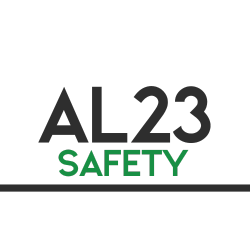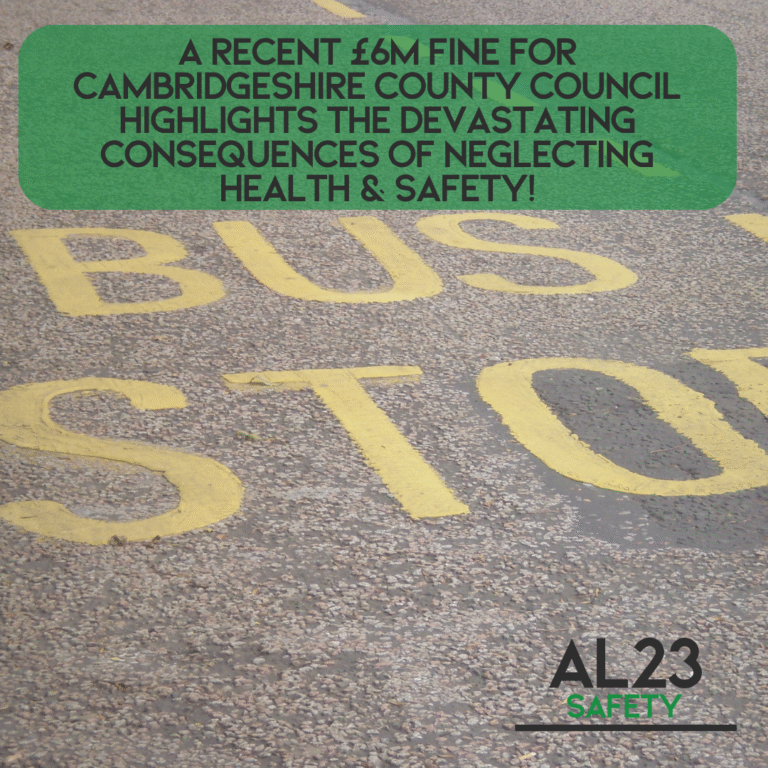Why Health and Safety Compliance UK Standards Cannot Be Ignored
The recent £6 million fine imposed on Cambridgeshire County Council serves as a stark reminder of why Health and Safety Compliance UK regulations must be taken seriously. This devastating case highlights how neglecting safety protocols in public transport systems can lead to avoidable tragedies with far-reaching consequences. Over a decade, multiple preventable incidents occurred on the guided busway, resulting in loss of life that proper safety measures could have prevented.
For organisations across the UK, this case provides valuable lessons on the critical importance of maintaining rigorous Health and Safety Compliance UK standards in all operations, particularly those involving public safety.
The Legal Framework Behind Health and Safety Compliance UK Requirements
The Health and Safety at Work etc. Act 1974 clearly outlines the legal responsibilities that employers and public bodies have regarding safety. This foundational legislation forms the backbone of Health and Safety Compliance UK regulations, establishing that all organisations must:
- Conduct regular and thorough risk assessments
- Implement appropriate safety measures based on identified risks
- Maintain ongoing safety monitoring and improvement processes
- Ensure proper training for all relevant personnel
- Prioritise public safety in all operational decisions
Cambridgeshire County Council pleaded guilty to serious offences under this Act, demonstrating the severe consequences of non-compliance. Their failures showcase what happens when Health and Safety Compliance UK standards are treated as optional rather than essential.
Systematic Failures in Safety Protocol Implementation
The investigation into the busway incidents revealed alarming gaps in safety management that organisations should learn from:
- Delayed Risk Assessments: The council failed to conduct essential risk assessments until five years after the busway began operation—a fundamental Health and Safety Compliance UK requirement.
- Inadequate Signage: Basic safety measures such as clear warning signs at crossing points were neglected.
- Poor Visibility Planning: Insufficient lighting at hazardous areas created dangerous conditions, particularly during evening hours.
- Reactive Rather Than Proactive Approach: Safety measures were only considered after incidents had already occurred.
- Lack of Continuous Safety Monitoring: No system was in place to regularly evaluate and improve safety protocols.
- Insufficient Public Safety Education: Users of the busway were not adequately informed about potential hazards.
- Failure to Learn from Incidents: Early warning signs and minor incidents did not lead to systemic improvements.
The Human Cost of Health and Safety Compliance UK Failures
Behind the statistics and legal proceedings lie devastating human stories. Jennifer Taylor, Steve Moir, and Kathleen Pitts lost their lives due to these preventable safety failures. Their families continue to seek closure while living with the permanent consequences of inadequate Health and Safety Compliance UK protocols.
These tragedies remind us that health and safety regulations exist not simply as bureaucratic requirements but as essential protections for human life. When organisations fail to meet their obligations, real people suffer real consequences.
How Professional Health and Safety Consultants Transform Safety Culture
At AL23 Safety, we understand that effective Health and Safety Compliance UK management begins with a comprehensive understanding of your organisation’s specific risks and requirements. Our approach transforms compliance from a tick-box exercise into a fundamental aspect of operational excellence.
Expert Guidance Through Complex Legislation
The landscape of Health and Safety Compliance UK legislation is complex and constantly evolving. Professional consultants provide clarity, ensuring your organisation not only meets current requirements but is prepared for future regulatory changes.
Tailored Safety Solutions That Work
Generic safety protocols often fail to address specific organisational risks. A professional health and safety consultant develops customised solutions that:
- Address your unique operational challenges
- Integrate seamlessly with existing processes
- Provide practical implementation strategies
- Offer ongoing support and development
Creating a Culture of Continuous Improvement
Perhaps most importantly, working with health and safety professionals helps establish a culture where safety becomes everyone’s priority. This cultural shift results in:
- Proactive identification of potential hazards
- Employee engagement in safety processes
- Reduced incidents and associated costs
- Enhanced reputation and stakeholder confidence
Beyond Compliance: Building a Safer Future
Genuine commitment to Health and Safety Compliance UK standards delivers benefits far beyond avoiding fines and legal penalties. Organisations that prioritise safety experience:
- Improved operational efficiency
- Enhanced employee morale and retention
- Reduced insurance premiums
- Stronger community relationships
- Competitive advantage through demonstrated responsibility
The Cambridgeshire busway tragedy demonstrates that public safety cannot be compromised. By learning from these failures and implementing robust safety protocols, organisations can ensure they never find themselves facing similar consequences.
Taking the Next Step Towards Safety Excellence
Achieving excellence in Health and Safety Compliance UK standards requires commitment, expertise, and ongoing vigilance. If your organisation is ready to transform its approach to safety, AL23 Safety’s team of experienced consultants is here to guide you through every step of the process.
To discuss how we can assist your organisation in implementing effective health and safety solutions, explore our comprehensive services and discover the peace of mind that comes with a genuine commitment to safety.
Remember: when it comes to health and safety, prevention is always better than remedy. The time to strengthen your safety protocols is now—before incidents occur, not after they’ve caused irreparable harm.



